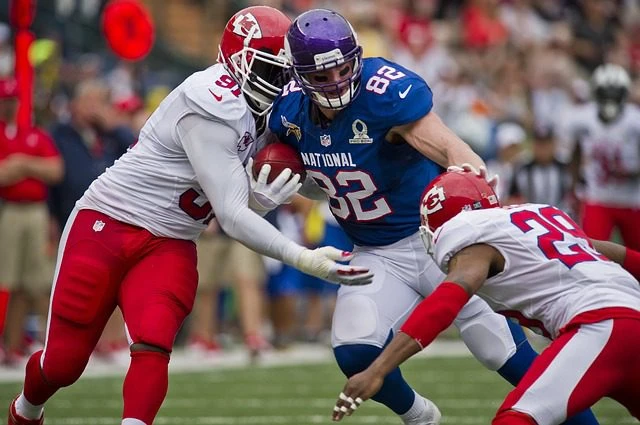Legal wagering to boost sports viewership, poll suggests

A survey conducted by a New Jersey university suggests that sports betting may drive an increase in sports viewership, with a clear majority of those surveyed saying they are more likely to tune in if they have wagered money on a game.
The findings were revealed in the latest edition of the Seton Hall Sports Poll, a regular survey of public views on sports and related businesses that has been carried out since 2006 by the Seton Hall University, a private Roman Catholic academic institution.
The report suggests that 70% of consumers are more likely to watch a sporting event on television or via a stream if they place a bet on it. This increases to 88% when focusing on the 18-29 age bracket.
The poll also revealed an apparent appetite for mobile betting, with 40% of respondents saying they would bet via their phone rather than at a casino or gambling parlour. Respondents were also mainly of the opinion that states should be left to regulate sports betting, with 65% favouring the status quo, as opposed to a 26% minority that backed a federal framework.
However, the Seton Hall Sports Poll also revealed a degree of uncertainty towards sports betting among respondents. It found that 61% were worried legal betting across the country could result in higher levels of match-fixing in major US sports leagues.
Those polled were also worried at how legalised sports wagering could fuel a rise in problem gambling across the US, with 43% agreeing to some extent. Such concerns were more apparent among older respondents, when, in comparison, just 5% of those aged 18-29 feared a rise in problem gambling levels.
The poll also revealed apparent uncertainty among consumers regarding the legality of wagering, with 52% of respondents unsure if sports betting is legal in their state.
There was also a clear split over whether the Supreme Court was right to repeal PASPA and allow more states to legalise sports betting. While 40% approved of the move, 16% were against it and 44% were unsure or had no opinion on the matter.
Rick Gentile, director of the Seton Hall Sports Poll, said: “Watching is the first step towards creating a paying fan. In the 1980s, the leagues became aware that fantasy sports were heightening interest, and eventually, they embraced it. Now they appear to be ‘all in’ with something once impossible to imagine.”
The figures on fan engagement back up earlier claims by the American Gaming Association (AGA) that major leagues in the country would attract more viewers if they were able to work with the gaming industry. In October, the AGA and Nielson Sports said the four major leagues could earn a collective $4.2bn (£3.29bn/€3.70bn) extra per year if they embrace legal sports betting.
Revenue for Major League Baseball could increase by $1.1bn, with basketball’s NBA is set to benefit by an extra $585m. Ice hockey’s NHL could see revenue hike by up to $200m per year, while the NFL American football league may see its revenue climb by $2.3bn each year.
Since the repeal of PASPA earlier this year, New Jersey, Delaware, Mississippi, Pennsylvania, Rhode Island and West Virginia have all moved to legalise and subsequently launch sports betting services. Many other states are also in the process of developing bills to follow suit.
This week, Kansas lawmakers opened a debate in the hope of filing a bill in the state’s House of Representatives during the 2019 legislative session. Last week, Washington D.C. opted to drop a so-called royalty fee for sports leagues from a bill before progressed it forward to a full council hearing.
However, states could face fresh challenges to legalise sports betting, according to a leaked Congressional draft bill. The bill would require states to have betting legislation approved by the US Attorney General and purchase official major league data.
Image: Max Pixel
